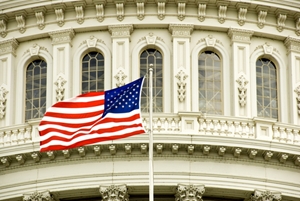
Most of the mandates for the Affordable Care Act are now in effect. The ACA was passed in 2010, but it wasn't until last year that most of the requirements kicked in. Still, there are several others that are scheduled for next year.
Perhaps the most significant one is the expansion of what companies must provide employee benefits to their full-time workers, which the government defines as anyone who works 30 hours per week or more. Presently, all companies with 100 or more full-time employees must be extended employee benefits. But come next year, this mandate will also include small businesses who employ 50 people or more.
At more than 53 percent, the majority of people who have health insurance are covered through their workplace. According to the U.S. Census Bureau, the largest single type of health insurance is employment based. However, in attempt to save on costs, some employers may look to get around the health care reform by cutting back on their workers' hours. In doing so, business owners may be running afoul of the law. That's because cutting hours in order to follow the employer mandate may violate the Employee Retirement Income Security Act.
ERISA signed into law in 1974
Passed by the U.S. Congress and signed into law by President Gerald Ford 41 years ago, ERISA established a basic set of standards that health plans had to provide individuals who were the recipients of various benefits, such as retirement income, pension and private health insurance. As noted by Business Management Daily, a portion of the law states that it "shall be unlawful for any person to discharge, fine, suspend, expel, discipline, or discriminate against a participant or beneficiary for exercising any right to which he is entitled under the provisions of an employee benefit plan … for the purpose of interfering with the attainment of any right to which such participant may become entitled under the plan."
Business Management Daily reported that a well-known restaurant chain is being sued by one of its employees, who alleges that her hours were cut back because the franchise wanted to avoid the employer mandate. In order to prove her case, though, she'll need to have hard evidence that her full-time status was cut to part-time for interference with insurance entitlements.
The individual mandate docks those who don't have health insurance 2 percent of their annual income, or $325, whichever is highest. That's up from 1 percent last year. For employers who fail to provide benefits, the fine is $2,000 per worker.
ACA sentiment has improved
Public opinion about the ACA, regarding whether it's a good or bad law, has been decidedly split over the years, with the biggest gulf in sentiment last year. According to a Gallup poll at the time, in January 2014, roughly 54 percent of Americans disapproved of the health care law and 38 percent approved. The separation was widest later that year at 56 percent opposed and 37 percent in favor.
Since then, the gap has narrowed considerably, with 47 percent now approving of the ACA and 48 against. That's the smallest disparity since 2012.
"Americans' views of the ACA have improved in recent months, but because they were more negative about it previously, now they are merely divided in their assessments of it," said Jeffrey Jones, managing editor at Gallup. "The Supreme Court's decision may have helped boost Americans' views of the law, giving it further legitimacy."
Earlier this month, the high court ruled that those who were receiving subsidies to pay for health insurance could continue to do so, despite the law stating that only those who purchased from state exchanges were eligible.





